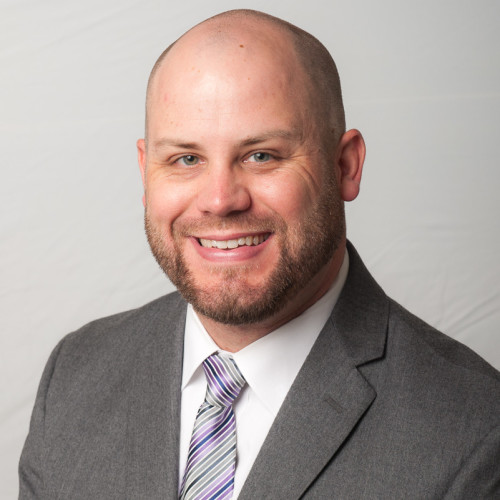On August 23, 2019, Governor Pritzker signed House Bill 3687 into law as Public Act 101-0521. The law amends the Illinois Criminal Code and requires that, upon a school employee’s arrest after commencement of a prosecution for a sex offense, the State’s Attorney must immediately provide a copy of the charging document to the Superintendent or school administrator. The law says that it shouldn’t be interpreted “to diminish the rights, privileges, or remedies of an employee under a collective bargaining agreement or employment contract.”
Also on August 23, 2019, Governor Pritzker signed Senate Bill 456 into law as Public Act 101-0531. The law is wide-ranging and amends numerous sections of the School Code, as well as the Personnel Record Review Act.
Criminal and DCFS Background Checks
P.A. 101-531 amends Sections 10-21.9 and 21B-80 of the School Code in several ways:
- Schools have long had to conduct checks of the Illinois Sex Offender Registry and the Murderer and Violent Offender Against Youth Registry for new applicants. Now, schools have to re-conduct those same two checks at least every 5 years on existing employees.
- Schools now “must consider” the status of applicants and student teachers who have had DCFS indicated findings of abuse or neglect.
- Now, if a school learns of an applicant’s conviction of an enumerated offense or a listing in one of the two registries listed above, they have to notify the State Superintendent in writing within 15 business days. The State Superintendent then can initiate license revocation or suspension proceedings or, if the license was issued within the last 6 months, rescind the license altogether.
- The law adds several crimes to the list of enumerated offenses that prohibit an individual’s employment in schools. For a copy of HLERK’s updated list of enumerated offenses, contact Caitlin Frenzer.
- If an employee with a professional educator license (“PEL”) is charged with attempting, soliciting, or committing the enumerated “sex or other offenses,” first degree murder, or a Class X felony (or comparable crime in another state), the State Superintendent must immediately suspend the employee’s PEL. The PEL is to be reinstated if the employee ends up being acquitted.
Mandated Reporting
The law amends Sections 10-23.12 and 21B-75 of the School Code to provide for immediate dismissal of non-PEL employees or for referral to the State Superintendent for licensure revocation proceedings for PEL employees if they “willfully or negligently” fail to report child abuse or neglect. In this specific context, “willfully or negligently” means the employee “personally observed” the conduct.
Professional Development
The law amends Section 21B-45 of the School Code, related to required professional development for PEL employees, in two ways. First, ISBE now is required to randomly audit the records of such employees to verify completion of the required professional development hours. If the audit reveals incomplete PD hours, the employee’s PEL lapses. Second, providers of required professional development hours now must register annually with ISBE.
Sexual Abuse Investigations
The law also creates new School Code Sections 10-20.69, 22-85, and 22-86, all related to investigations involving sexual abuse allegations.
First, the law creates the “Make Sexual and Severe Physical Abuse Fully Extinct (Make S.A.F.E.) Task Force.” The goal of the task force is to create and submit to the Governor by September 15, 2020, a report outline best practices related to investigating and addressing allegations of sexual abuse and/or severe physical abuse involving a student.
Second, the law spells out a detailed protocol for “alleged incidents of sexual abuse” of a student by a school employee, vendor, or volunteer, particularly in counties with a Children’s Advocacy Center. Note that this protocol applies to all types of schools, including public schools, private schools, charter schools, etc. Involve your legal counsel right away if you learn of such allegations.
Third, school districts now are required to review their policies and procedures regarding sexual abuse investigations every two years.
Teacher Dismissal Procedures
Section 24-12 of the School Code governs dismissals of tenured teachers due to a RIF, unsatisfactory performance, or misconduct. Consistent with the theme of this entire law of protecting students against predatory teachers, the law adds a requirement that, in a performance-based dismissal and in a misconduct-based dismissal stemming from sexual abuse or severe physical abuse, the ISBE hearing officer must make accommodations for the minor victim (if he/she is still under 18) so the student doesn’t have to directly face the teacher in the same room during the hearing.
Of note for charter schools, P.A. 101-531 also includes an amendment making Sections 24-12 and 34-85 of the School Code–the sections that govern tenured teacher dismissals in non-Chicago and Chicago schools, respectively–applicable to charter schools.
Last-Minute Teacher Resignations
The law also impacts the suspension of a teacher’s license who resigns from his/her position and leaves a school district in a lurch. Now, if a tenured teacher resigns within 30 days of the start of the school year without Board approval or if any teacher resigns during the school year without Board approval to teach elsewhere, the teacher may be referred by Board resolution to the State Superintendent. The State Superintendent must convene an informal evidentiary hearing within 90 days after receiving such a resolution. If the State Superintendent finds that the teacher resigned during the school term without the agreement of the Board to accept another teaching assignment, the State Superintendent must suspend the teacher’s license for one calendar year. There is also an allowance for a lesser licensure penalty in lieu of a hearing, which is at the discretion of the State Superintendent.
Personnel Records Related to Abuse or Exploitation of a Minor
Finally, the law amends the Illinois Personnel Record Review Act in two ways. First, there is an existing provision that says employers are to remove disciplinary records that are more than four years old before they disclose disciplinary materials to a third party. The new law added a specific carve-out so schools can still share disciplinary records—even old ones—if they are related to an incident or attempted incident of sexual abuse or severe physical abuse.
Also, the Personnel Record Review Act contained an existing provision saying that employers generally cannot gather or keep a record of an employee’s associations, political activities, non-work activities, etc. The new law adds a carve-out. Now, employers can gather or keep a record of an employee’s “activities or associations with individuals or groups involved in the physical, sexual, or other exploitation of a minor.”
Contact Cindi DeCola, Tina Christofalos, or Jeff Goelitz with questions about the various contours of this new law.



